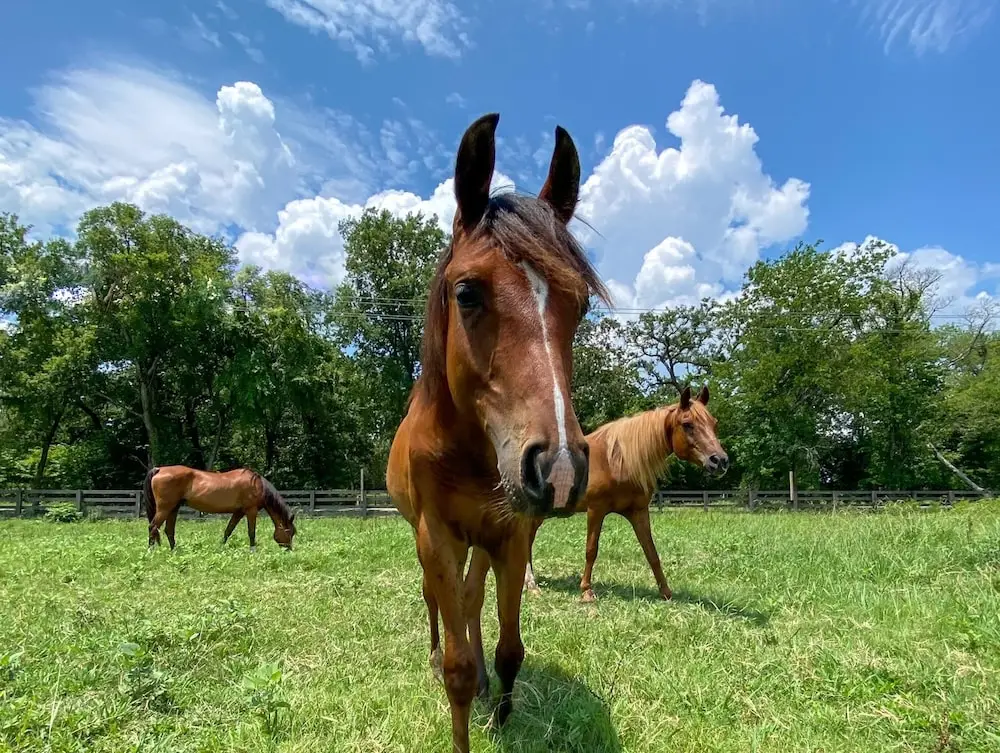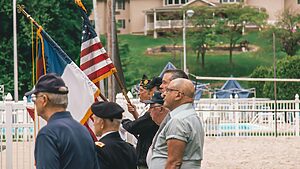On the peaceful grounds of Texas Recovery Centers in Scurry, clients experiencing addiction and mental health challenges find healing through an unexpected source: horses. Equine therapy, also known as equine-assisted therapy or equine-facilitated psychotherapy, has become an increasingly valued component of comprehensive addiction treatment programs. But what makes this therapeutic approach so effective? This article explores the psychological and neurobiological mechanisms that make equine therapy a powerful tool in the recovery process.
The Neurobiological Foundation of Human-Animal Connection
The human-animal bond has deep evolutionary roots that make interactions with horses particularly powerful in therapeutic settings. When humans engage with horses, several neurobiological processes occur:
Oxytocin Release
Physical contact and positive interactions with horses stimulate the release of oxytocin, often called the “bonding hormone.” This neurochemical:
- Reduces anxiety and stress responses
- Promotes feelings of trust and connection
- Counteracts the dysregulated stress systems common in addiction
- Helps repair attachment systems often damaged by trauma and substance use
Regulation of the Nervous System
Horses have a profound impact on human nervous system function:
- Their rhythmic breathing and movement patterns can help regulate human physiological states
- Proximity to horses often activates the parasympathetic (“rest and digest”) nervous system
- This counteracts the hypervigilance and stress responses common in addiction and trauma
Dopamine Pathways
Positive interactions with horses activate natural reward systems in the brain:
- These interactions stimulate dopamine release through healthy, non-substance means
- They help “rewire” reward pathways that have been hijacked by substances
- Pleasurable experiences with horses provide alternative sources of positive reinforcement

The Power of Nonverbal Communication
Perhaps the most unique aspect of equine therapy is its emphasis on nonverbal communication. This dimension is particularly valuable in addiction treatment for several reasons:
Immediate, Honest Feedback
Horses provide unfiltered feedback about a person’s emotional state:
- They respond to subtle cues in body language, energy, and intention
- They mirror internal states, often revealing emotions the person hasn’t recognized
- Their responses aren’t clouded by social politeness or hidden agendas
- This immediate feedback bypasses the defensive mechanisms common in addiction
Authentic Emotional Expression
Working with horses creates opportunities for genuine emotional experiences:
- Many people with addiction have difficulty accessing and expressing emotions appropriately
- Horses respond positively to congruence between internal states and external expression
- This encourages emotional authenticity rather than the performative behaviors often developed during addiction
Beyond Verbal Defenses
Traditional talk therapy can sometimes be limited by a client’s verbal defenses:
- People with addiction often develop sophisticated ways to deflect through words
- Equine interactions bypass these verbal defenses, revealing behavioral patterns
- This creates opportunities for insight that might not emerge in talk therapy alone
Mindfulness and Present-Moment Awareness
Successful interaction with horses requires attentional focus and present-moment awareness—qualities often compromised during addiction but essential for recovery.
Cultivating Attention
Horses demand focused attention for effective communication:
- Their sensitivity to human distraction promotes concentration
- Interactions require monitoring of both the horse’s responses and one’s own behavior
- This practice strengthens attentional control, often weakened during addiction
Embodied Awareness
Working with horses promotes awareness of one’s physical presence:
- It requires attention to posture, movement, breathing, and muscle tension
- This embodied awareness counteracts the disconnection from physical experience common in addiction
- Physical engagement activates body-based memory and learning systems
Disruption of Rumination
Horses effectively interrupt patterns of negative thinking:
- Their presence demands attention to the present rather than past regrets or future anxieties
- This disrupts rumination cycles that often trigger cravings and contribute to relapse
- The immediate engagement provides respite from overwhelming emotions
Relational Development Through Projection and Metaphor
Equine therapy provides rich opportunities for psychological growth through projection and metaphor—processes that can illuminate relationship patterns relevant to recovery.
Projection and Transference
Interactions with horses often evoke projections of significant relationships:
- Clients may project parental, partner, or authority relationships onto the horse
- These projections become visible through how they approach and interact with the horse
- Identifying these patterns creates opportunities to recognize and modify dysfunctional relationship approaches
Metaphorical Learning
The challenges of working with horses provide powerful metaphors for recovery:
- Setting boundaries with a 1,000-pound animal parallels setting boundaries in relationships
- Building trust with a naturally cautious creature reflects trust-building in recovery
- Communicating clearly with a horse mirrors the need for clear communication in life
- Developing leadership without force represents healthy personal empowerment
Experiential Processing
Equine activities create experiences that can be processed in multiple ways:
- The emotional content of these experiences often resonates more deeply than intellectual understanding
- Physical engagement activates different memory and learning systems than verbal processing alone
- These experiences provide concrete references for abstract recovery concepts
Equine Therapy Activities at Texas Recovery Centers
At Texas Recovery Centers, equine therapy is thoughtfully integrated into comprehensive treatment. Our program includes several types of equine interactions, each with specific therapeutic goals:
Observation and Reflection
Clients begin by simply observing horses in their natural environment:
- This creates opportunities to discuss herd dynamics and social behavior
- It allows clients to project their own experiences onto what they observe
- It introduces the therapeutic relationship with limited pressure for interaction
Groundwork Exercises
Structured activities with horses on the ground develop core recovery skills:
- Leading exercises build communication and leadership abilities
- Grooming sessions develop nurturing behaviors and attention to others’ needs
- Liberty work (directing horses without physical contact) builds non-verbal communication
Problem-Solving Activities
Team-based equine challenges promote collaboration and creative thinking:
- Navigating obstacles with horses requires planning and adaptation
- Group activities build peer support and healthy interdependence
- Overcoming challenges with horses builds confidence and resilience
Mounted Work (When Appropriate)
For some clients, riding provides additional therapeutic benefits:
- The rhythmic movement of riding has regulatory effects on the nervous system
- Mounted work requires trust-building and vulnerability
- Successfully directing a horse while mounted builds confidence and mastery
Integration with Traditional Therapeutic Approaches
The power of equine therapy is amplified when integrated with traditional therapeutic modalities. At Texas Recovery Centers, equine experiences are processed through:
Individual Therapy Sessions
- Therapists help clients connect equine experiences with personal recovery challenges
- Insights gained through horse interactions inform traditional therapy goals
- Processing equine experiences verbally integrates emotional and cognitive learning
Group Reflection
- Sharing observations about equine activities builds community and diverse perspectives
- Peers often recognize patterns in others that parallel their own experiences
- Group processing normalizes emotional responses and builds mutual support
Journaling and Creative Expression
- Written reflection helps consolidate learning from equine experiences
- Creative expression through art or writing accesses emotional content of equine interactions
- These practices extend the benefits of equine sessions beyond direct contact time
Equine Therapy for Specific Recovery Challenges
While beneficial for many clients, equine therapy particularly addresses several common challenges in addiction recovery:
Trust and Vulnerability
Horses create unique opportunities to rebuild trust:
- Their size requires trust while their gentle nature makes vulnerability feel safer
- Positive experiences with horses can begin healing relationship trauma
- Successful connection with horses demonstrates that trust is possible
Boundary Development
Many people with addiction struggle with appropriate boundaries:
- Horses require clear, consistent boundaries for safe interaction
- They provide immediate feedback when boundaries are too rigid or too permissive
- Practicing boundary-setting with horses transfers to human relationships
Emotional Regulation
Horses respond differently to regulated versus dysregulated human emotions:
- Their sensitivity encourages clients to develop emotional awareness and control
- Successfully managing emotions to work effectively with horses builds confidence
- This practice develops regulatory skills essential for maintaining recovery
Impulse Control
Effective horse handling requires patience and impulse management:
- Hasty or impulsive behaviors typically yield poor results with horses
- The immediate feedback helps clients recognize their impulsive patterns
- Practicing restraint with horses builds capacity for impulse control in triggering situations
Conclusion: The Integrated Approach at Texas Recovery Centers
At Texas Recovery Centers, equine therapy isn’t an isolated recreational activity but a thoughtfully integrated component of comprehensive treatment. Our approach recognizes that the most effective recovery combines evidence-based clinical interventions with experiential therapies that engage different aspects of the person.
The neurobiological and psychological mechanisms that make equine therapy effective align perfectly with our commitment to holistic healing. By engaging body, mind, emotions, and relationships, equine therapy complements traditional treatment approaches and creates unique opportunities for growth and transformation.
Our ranch setting in Scurry provides the ideal environment for this powerful therapeutic modality, with extensive space for equine activities and a natural setting that enhances the healing experience. This tranquil environment, combined with expert facilitation, creates optimal conditions for the therapeutic benefits of equine interaction.
If you’re interested in experiencing equine therapy as part of your recovery journey, we invite you to learn more about our program. Contact Texas Recovery Centers at 888-354-2194 to discover how our comprehensive approach, including equine therapy, can support your path to healing and lasting recovery.












